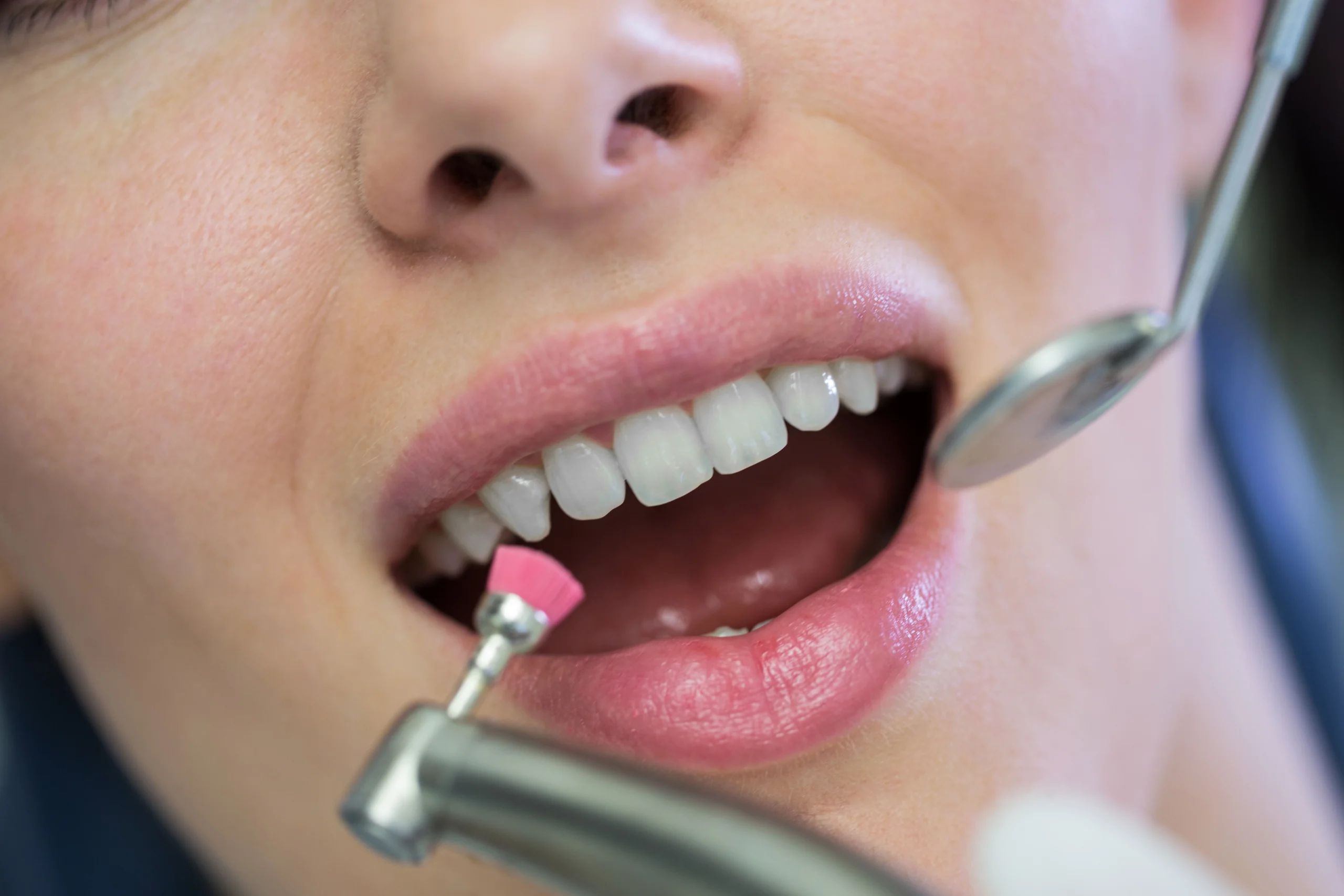Have you noticed your teeth looking a bit longer lately, or maybe they’re feeling more sensitive? You might be dealing with receding gums, a common issue that many people face. But don’t worry, it’s not the end of the world! This guide will walk you through the causes, treatments, and preventative measures for receding gums so you can take charge of your oral health and keep your smile shining bright.
Why Are My Gums Receding?
Receding gums happen when the gum tissue pulls back, exposing more of your teeth and sometimes even the root. It’s like the tide going out, but unfortunately, your gums don’t come back in! Several things can cause this:
- Brushing Too Hard: You might think you’re doing a great job by scrubbing your teeth with all your might, but actually, you could be doing more harm than good. Brushing too hard or using a hard-bristled toothbrush can wear down your enamel and irritate your gums, causing them to recede. Think of it like scrubbing a delicate fabric too forcefully – it’ll eventually fray and tear. Your gums are delicate, too!
- Gum Disease: This is a bacterial infection that causes inflammation in your gums and the bone supporting your teeth. It’s like having tiny little villains attacking your gums! Plaque and tartar buildup are their weapons, and if left unchecked, they can cause serious damage, including gum recession and even tooth loss.
- Genetics: Sometimes, you’re simply more prone to gum recession because of your genes. If your parents or grandparents had receding gums, you might be more likely to have them, too. It’s not your fault, but it’s something to be aware of.
- Hormones: For women, hormonal changes during puberty, pregnancy, or menopause can make gums more sensitive and prone to recession. It’s like your hormones are playing a game of tug-of-war with your gums!
- Smoking: Smoking and chewing tobacco are terrible for your gums. They weaken them and make them more vulnerable to recession. Nicotine, the addictive substance in tobacco, reduces blood flow to the gums, making it harder for them to fight off infection and heal.
- Grinding Your Teeth: If you grind or clench your teeth, especially at night, you’re putting a lot of pressure on your gums, which can cause them to recede. It’s like your teeth are trying to stage a rebellion!
- Crooked Teeth or Bite Issues: If your teeth are crooked or your bite is misaligned, it can create uneven pressure on your gums and bone, leading to recession in certain areas. It’s like a wonky picture frame putting stress on the wall.
- Lip or Tongue Piercings (The Irritants): Jewellery in your mouth can rub against your gums, causing irritation and recession. It’s like having a tiny little bully constantly poking at your gums.
- Poor Oral Hygiene (The Lazy Route): Not brushing and flossing properly allows plaque to build up, leading to gum inflammation and recession. It’s like leaving dirty dishes in the sink – eventually, things will start to go bad!
Common Signs of Receding Gums
Catching receding gums early can make a big difference in how well treatment works. Here are some signs to watch out for:
- Sensitive Teeth: If your teeth are suddenly feeling more sensitive to hot or cold foods and drinks, it could be a sign of receding gums.
- Longer Teeth: Do your teeth seem to be getting longer? That’s because your gums are receding, exposing more of your teeth.
- Notches in Your Gums: You might notice a notch or “step” near the gum line where the gum has receded.
- Bleeding Gums: If your gums bleed when you brush or floss, it’s a sign of inflammation, which can be a cause or a result of gum recession.
- Red, Swollen, or Tender Gums: These are all signs of inflammation, which can contribute to gum recession.
- Bad Breath: Persistent bad breath or a bad taste in your mouth can be a sign of gum disease, which can cause receding gums.
Diagnosis of Gum Recession
When you visit the dentist for receding gums, they’ll want to get a good look at what’s going on. Here’s what you can expect:
- A Good Look Around: The dentist will visually inspect your gums and teeth.
- Pocket Measuring: They’ll use a special tool called a periodontal probe to measure the pockets between your gums and teeth. Deeper pockets can indicate gum disease.
- X-Ray Vision: X-rays help the dentist see if there’s any bone loss, which can happen with gum disease.
- Your Dental History: The dentist will ask about your medical and dental history to get a better understanding of your overall health.
Treatment for Gum Recession
The bad news is that receded gums can’t grow back. It’s like wishing you could un-spill milk – it’s just not possible. But the good news is that dentists have several tricks up their sleeves to stop further recession and address the underlying causes.
- Deep Cleaning: This is like a spa treatment for your gums! The dentist will remove all the plaque and tartar from above and below the gum line and smooth out your tooth roots to prevent bacteria from sticking around. This helps reduce inflammation and gives your gums a chance to heal.
- Gum Graft: In more severe cases, the dentist might recommend a gum graft. This is like getting a little patch for your gums. They’ll take tissue from another part of your mouth or use donor tissue to cover the exposed root. This protects the root from further damage and makes your smile look better.
- Topical Antibiotics: If you have a bacterial infection, the dentist might apply antibiotics directly to your gums. This helps kill off any lingering bacteria and promotes healing.
- Dental Bonding: If your receding gums are causing tooth sensitivity, the dentist can use dental bonding to cover the exposed roots. This is like putting a little bandage on your teeth to protect them and reduce sensitivity.
- Orthodontics: If crooked teeth or bite problems are contributing to your gum recession, the dentist might recommend braces or aligners. This helps straighten things out and take the pressure off your gums.
Home Care Tips
Taking care of your gums at home is like being a superhero for your mouth! Here are your trusty sidekicks:
- Soft-Bristled Toothbrush: Always use a soft-bristled toothbrush and be gentle when you brush. Remember, harsh brushing can make your gums recede, so treat them with kindness.
- Sensitive Toothpaste: If your teeth are feeling sensitive, switch to a toothpaste designed for sensitive teeth. It’ll help calm those nerves and reduce discomfort.
- Antibacterial Mouthwash: This helps kill bacteria and reduce plaque buildup, which are the enemies of healthy gums.
Lifestyle Changes for Gum Health
In addition to professional help, you can make some lifestyle changes to support your gum health. It’s like giving your gums a boost from the inside out!
- Gentle Brushing: Brush in a circular motion, and don’t press too hard.
- Flossing Fanatic: Floss every day to remove plaque and food particles from between your teeth.
- Healthy Diet: Eat plenty of fruits, vegetables, and lean proteins to keep your whole body healthy, including your gums.
- Quit Smoking: If you smoke, quitting is one of the best gifts you can give your gums (and your overall health!).
- Stress Less: Stress can make you grind your teeth, so find healthy ways to relax, like yoga, meditation, or spending time in nature.
- Oil Pulling: Swishing coconut oil around in your mouth for 10-20 minutes a day can help reduce plaque and bacteria. It might sound a bit strange, but it can be surprisingly effective!
- Aloe Vera: Applying aloe vera gel to your gums can help reduce inflammation. It’s like a soothing balm for your gums.
- Saltwater Rinse: Rinsing with warm salt water can also soothe irritated gums. It’s a simple, natural remedy that can make a big difference.
- Green Tea: Drinking green tea can help reduce inflammation and promote gum health. So, put the kettle on!
- Vitamin C: Make sure you’re getting enough vitamin C in your diet. It’s essential for healthy gums.
Gum Recession in Specific Populations
Certain groups of people might need to take extra care of their gums.
- Pregnant Women: Hormonal changes during pregnancy can increase the risk of gum disease, so it’s important to be extra vigilant with oral hygiene.
- People with Diabetes: Diabetes can weaken the immune system, making gums more susceptible to infection.
- Older Adults: As we age, our gums can become more vulnerable to recession.
Psychological Impact of Gum Recession
Receding gums can affect how you feel about yourself. You might feel self-conscious about your smile or worried about tooth sensitivity. But remember, you’re not alone, and there are things you can do to manage the condition and feel more confident.
Taking Control of Your Gum Health
Receding gums are a common problem, but they don’t have to take over your life. By understanding the causes, recognising the symptoms, and seeking professional help, you can take control of your gum health and keep your smile healthy and bright.
Don’t wait until it’s too late! If you notice any signs of gum recession, see your dentist right away. They can help you develop a treatment plan and give you the tools you need to manage the condition. With a little effort and the right care, you can keep your gums healthy for years to come.
If you’re concerned about gum recession or any other dental health issues, contact Waldron Dental today. Our experienced team is here to help you achieve and maintain a healthy smile.
References:
https://www.healthline.com/health/dental-oral-health-receding-gums













